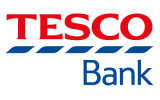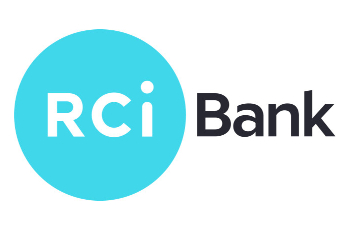This comparison simply includes all savings accounts.
Joint Savings Accounts
£500 bonus to boost your savings if you receive a residential purchase mortgage offer from Leeds Building Society
Compare joint savings accounts
Joint savings accounts allow couples, or any other pair of people, to pool their savings into a single account. This can make it easier to manage your savings and allow you to achieve a better return by giving you a bigger pot of money to collect interest on.
Agreeing on the best joint savings accounts to match both of your needs can be tricky, which is why it is a good idea to be well-informed about all the different types of accounts available to you.
Current Accounts
If you have a relatively small amount of savings, a joint current account will likely offer the best rate of interest.
However, if your savings exceed the upper limit on which your current account pays interest, you should look at transferring the balance to an alternate account to maximise your return. Also, remember that interest rates on current accounts change over time, so you will need to review regularly whether it is worth moving more of your money to earn more in interest.
Instant Access Savings Accounts
If you want to earn interest on the whole of your savings while still being able to use them whenever you need them, an instant access account is ideal. Some instant accounts will allow you to take money out from cash points, while others will require you to go into a branch or make a phone or online transfer. The only real restriction here is that there may be a limit to how many withdrawals you can make per year.
Easy Access Savings Accounts
These are similar to instant access accounts, except you may have to wait a few days for withdrawal and transfer requests to be processed when you want to take money out.
Notice Savings Accounts
These accounts offer the flexibility to access your savings when you need them, and give a better interest rate than most instant and easy access accounts. You can still take money out whenever you want to, but you have to give the bank a pre-agreed period of notice first.
This notice period commonly varies from 40-95 days with some accounts going up to 120 days. You will usually get a higher interest rate the longer you are willing to wait when you want to make a withdrawal.
Regular Savings Accounts
Making relatively small monthly deposits can allow you to build up substantial savings over time. Regular savings accounts are designed for this kind of financial planning, and they tend to offer very attractive interest rates.
The downside is that there is normally a minimum monthly deposit, so you have to commit to continuing to save each month. There will also usually be a maximum monthly deposit, preventing you from building up your savings faster if you start having more to spare.
This means that although the interest rates of regular savings accounts are usually good, it could be a while before you start seeing solid returns on your savings. They are, however, ideal for long term savings.
Fixed Rate Bonds
If you have a significant lump sum to deposit which you do not immediately need, a fixed rate savings bond can be the ideal solution. They offer a guaranteed rate of interest in exchange for locking your money away for a pre-agreed period.
Fixed rate bonds usually last for 1 to 5 years and the longer their term, the higher the rate of interest you are likely to get. Some will allow you to withdraw funds before the end of their term, but you will usually have to pay a penalty fee for this.
Cash ISAs
ISAs are linked to the national insurance number of the person who opens them, so cannot be operated as joint accounts. However, they are still worth considering for couples and other partners looking for the best ways to save.
Because an ISA can only be in one person’s name, the other person in the partnership needs a good deal of trust in the one taking out the ISA if they are pooling their savings. In return, they will be able to earn tax-free interest on an amount determined by the government. For the 2017/18 tax year that amount is £20,000.
Here's a table comparing different types of savings accounts in the UK by key features:
|
Type of Account |
Interest Rates |
Accessibility |
Risk |
Special Features |
|
Easy Access Savings |
Lower |
High (Instant Access) |
Low |
Flexibility to deposit and withdraw at any time |
|
Fixed Rate Bonds |
Higher (Fixed) |
Low (Limited Access During Term) |
Low |
Offers a guaranteed return |
|
Notice Savings |
Moderate |
Moderate (Notice Needed) |
Low |
May offer better rates than Easy Access |
|
Regular Savings |
Moderate-High |
Moderate (Limit on Withdrawals) |
Low |
Rewards regular saving |
|
ISAs |
Varies |
High (Instant Access) or Low (Fixed Rate) |
Low |
Tax-free interest up to certain amount |
|
Junior ISAs |
Varies |
Low (Until Child Turns 18) |
Low |
Tax-free savings for children |
|
Help to Buy ISA |
Varies |
Low (For Property Purchase) |
Low |
Government bonus for first time home buyers |
Remember, the specifics of each account can vary between different financial institutions, so it's always important to read the terms and conditions carefully.
Find the joint savings account for you
Agreeing the best savings account for two people to share can be difficult, especially when there are so many different brands and products to choose from. Our joint savings account comparison table at the top of the page allows you to quickly and easily compare some of the best offers. These deals are updated frequently, so make sure to check back regularly for the latest offers.
Guide to the Best Joint Savings Account in the UK
Understanding Joint Savings Accounts
In the UK, joint savings accounts are a popular option for individuals who want to save money together with a partner, family member, or friend. These accounts offer a convenient way to pool financial resources, work towards shared savings goals, and benefit from potential higher interest rates. Before you open a joint savings account, it's essential to understand the fundamentals and weigh the pros and cons.
What is a Joint Savings Account?
A joint savings account is a type of bank account that allows two or more individuals to be co-owners or joint account holders. All account holders have equal access to the funds and can make deposits or withdrawals. It is commonly used by married couples, partners, or parents and children to save money jointly. This shared ownership can simplify money management, especially for expenses that both account holders contribute to, such as household bills or vacations.
Advantages of Opening a Joint Savings Account
Joint savings accounts offer several advantages that can benefit the account holders:
- Shared Responsibility: With a joint savings account, both account holders share responsibility for managing finances, making it easier to track contributions and monitor progress towards shared goals.
- Higher Interest Rates: Some financial institutions offer higher interest rates for joint savings accounts compared to individual accounts, allowing account holders to earn more on their savings.
- Convenient Expense Management: Joint savings accounts are useful for covering shared expenses like rent, mortgage, utilities, and family-related costs, as both parties can contribute directly to the account.
- Building Trust and Transparency: Managing finances together can promote open communication and trust between account holders, leading to a healthier financial relationship.
Considerations Before Opening a Joint Savings Account
While joint savings accounts offer numerous benefits, it's crucial to consider a few factors before opening one:
- Trust and Communication: Since both account holders have equal ownership and access to funds, a high level of trust and open communication is essential to avoid potential conflicts.
- Shared Financial Goals: Before opening a joint savings account, discuss your financial goals with the other account holder to ensure alignment and commitment to shared objectives.
- Financial Responsibility: Understand that each account holder is equally responsible for any debts or overdrafts associated with the joint account.
- Account Activity Monitoring: Regularly review the account activity together to stay informed about deposits, withdrawals, and changes in the account balance.
How to Choose the Right Joint Savings Account
When selecting a joint savings account in the UK, it's essential to consider various factors that align with your financial needs and goals. With numerous options available, making an informed decision can significantly impact the growth of your savings.
Assessing Your Savings Goals
Before opening a joint savings account, take some time to assess your savings goals as a team. Discuss what you want to achieve collectively, whether it's saving for a down payment on a house, planning a dream vacation, or building an emergency fund. Understanding your objectives will help you find an account that complements your goals.
Comparing Interest Rates and APY
Interest rates play a crucial role in the growth of your savings over time. Look for joint savings accounts that offer competitive interest rates or Annual Percentage Yield (APY). A higher APY means your money will grow faster. Compare rates among different financial institutions to find the best option.
Example:
|
Financial Institution |
Interest Rate |
APY |
|
Bank A |
0.50% |
0.51% |
|
Bank B |
0.75% |
0.76% |
|
Bank C |
0.80% |
0.81% |
In this example, Bank C offers the highest APY, making it an attractive choice for a joint savings account.
Fees and Charges to Watch Out for
When choosing a joint savings account, be aware of any fees or charges associated with the account. Common fees may include monthly maintenance fees, transaction fees, or fees for using out-of-network ATMs. Opt for an account with minimal fees to maximise your savings.
Online vs. Brick-and-Mortar Banks for Joint Savings Accounts
Decide whether you prefer an online bank or a traditional brick-and-mortar institution for your joint savings account. Online banks often offer higher interest rates and lower fees due to their lower operating costs. On the other hand, physical banks provide in-person customer service, which can be valuable for some account holders.
When selecting a joint savings account, it's essential to consider the features that will make managing your finances convenient and effective. Look for accounts that offer the following:
Accessibility and Convenience
- Online Banking: Opt for a joint savings account that provides online banking facilities. This feature allows you and your co-account holder(s) to access account information, make transfers, and monitor savings from the comfort of your own home or on the go.
- Mobile Banking App: A mobile banking app ensures that you can manage your joint savings account conveniently from your smartphone or tablet. Check if the app offers essential functionalities, such as mobile check deposits and notifications.
Account Management and Security
- User Permissions: Look for an account that allows you to set user permissions. This feature enables you to control the level of access each account holder has, ensuring transparency while maintaining security.
- Secure Authentication: Ensure that the financial institution employs robust security measures, such as two-factor authentication, to safeguard your joint savings account against unauthorised access.
Mobile Banking Capabilities
- Mobile Check Deposit: An account with mobile check deposit functionality allows you to deposit checks directly into the joint savings account using your mobile device, saving time and effort.
- Fund Transfer Options: Check if the account enables easy fund transfers between linked accounts, including external accounts held by the account holders.
Joint Account Holder Rights and Responsibilities
- Equal Ownership: Understand that all joint account holders have equal ownership rights to the funds. This means any account holder can withdraw money or close the account without the consent of others.
- Liabilities: Be aware of the joint account holder's joint and several liabilities. In the case of overdrafts or debts, the financial institution can hold any account holder responsible for the entire amount owed.
Additional Benefits and Perks
- Customer Support: Look for a financial institution that provides excellent customer support, with readily available assistance in case of any issues or concerns.
- Reward Programs: Some joint savings accounts offer reward programs that provide additional benefits, such as cashback on purchases or higher interest rates based on account activity.
Example:
Bank XYZ's joint savings account offers a reward program where account holders can earn 1% cashback on qualifying purchases made with their joint debit card.
By prioritising these features, you can ensure that your joint savings account aligns with your financial management needs and supports your savings objectives.
Steps to Open a Joint Savings Account
Opening a joint savings account involves a few essential steps to ensure a smooth and successful account setup.
Gather Required Documentation
Before visiting the bank or applying online, gather the necessary documentation for each account holder:
- Identification: Provide valid identification documents, such as passports or driving licenses, to verify the identity of all account holders.
- Proof of Address: Submit recent utility bills or bank statements that display the current address of each account holder.
- Social Security Numbers (or National Insurance Numbers): In the UK, banks typically require the social security numbers or national insurance numbers of all account holders.
Choosing the Right Type of Joint Account
Discuss with your co-account holder(s) the type of joint savings account that suits your needs. Common options include:
- Joint Tenancy: In this type of account, each account holder has an equal share, and if one account holder passes away, their share automatically transfers to the remaining account holder(s).
- Tenants in Common: This account type allows account holders to have unequal shares, and each person can designate who inherits their share in case of their passing.
Initiating the Account Opening Process
Now that you have gathered the necessary documentation and decided on the account type, it's time to initiate the account opening process:
- In-Person: Visit a local branch of your chosen bank with all required documents to open the joint savings account. A bank representative will guide you through the process.
- Online Application: Alternatively, you may choose to open the account online by visiting the bank's website and filling out the joint savings account application form. Submit the required documents electronically as per the bank's instructions.
Managing Account Access and Permissions
Once the joint savings account is open, manage account access and permissions:
- Set Account Access Levels: Determine how account holders will access and manage the account. This includes online banking access and debit card distribution.
- Establish Communication Channels: Agree on how you will communicate about account-related matters and financial decisions.
Managing and Maximising Your Joint Savings Account
Setting Up Regular Contributions
Consistent contributions are key to building substantial savings over time. Establish a plan with your co-account holder(s) to make regular contributions to the joint savings account. Determine a suitable amount to contribute each month based on your financial capabilities and savings goals.
Example:
If your savings goal is to accumulate £10,000 for a down payment on a house within three years, you'll need to contribute approximately £277 per month.
Creating a Budget and Savings Plan Together
Work together with your co-account holder(s) to create a comprehensive budget and savings plan. Identify areas where you can cut back on expenses and allocate more funds towards your joint savings account. Regularly review your budget to stay on track with your savings goals.
Maximising Interest Earned
To make the most of your joint savings account, explore options to maximise the interest earned:
- Explore Higher-Yield Accounts: If you find that your current bank's interest rates are not competitive, consider switching to a financial institution offering better yields.
- Consider Fixed-Term Deposits: Evaluate the option of placing a portion of your savings into fixed-term deposits, which often offer higher interest rates with the condition that you won't access the funds for a specified period.
Monitoring Account Activity and Progress
Regularly monitor the joint savings account activity and track your progress towards your savings goals. Many banks provide mobile apps or online banking platforms with real-time updates, making it convenient to keep an eye on your account.
Example:
Set a specific day each month to review your joint savings account balance and compare it to your target amount. Celebrate milestones as you get closer to your goal.
Reassessing and Adjusting Savings Strategies
Life circumstances and financial goals can change over time. Regularly reassess your savings strategies with your co-account holder(s) to ensure they align with your evolving needs. Be open to making adjustments as necessary to stay on course.
Example:
If one account holder receives a pay raise or a bonus, consider increasing the monthly contributions to accelerate savings.
By implementing these strategies and regularly collaborating with your co-account holder(s), you can effectively manage and grow your joint savings account to achieve your financial aspirations.
Tips for a Successful Joint Savings Account
Communication and Transparency
Open and honest communication is vital when managing a joint savings account. Regularly discuss financial goals, contributions, and any changes in income or expenses. Transparency about spending habits and financial decisions will foster trust and strengthen your financial partnership.
Dealing with Disagreements or Changing Circumstances
Disagreements about financial matters are natural in any partnership. When conflicts arise, approach the situation with patience and a willingness to compromise. Finding common ground and being open to each other's perspectives will help resolve conflicts amicably.
Example:
If one account holder wants to use a portion of the savings for a personal expense, discuss the implications and agree on a fair solution together.
Maintaining Individual Savings Accounts Alongside Joint Accounts
While a joint savings account helps manage shared expenses and goals, it's also essential to maintain individual savings accounts. Individual accounts can be used for personal savings goals or discretionary spending, providing financial autonomy to each account holder.
Example:
Consider having a joint savings account for household expenses and shared goals, while maintaining separate savings accounts for personal projects or hobbies.
By adhering to these tips and nurturing a strong financial partnership, your joint savings account can become a powerful tool for achieving both shared and individual financial objectives.
Frequently Asked Questions (FAQs) about Joint Savings Accounts
What Happens if One Account Holder Wants to Close the Joint Account?
In a joint savings account, any account holder has the right to close the account without the consent of others. If one account holder wishes to close the joint account, they can do so by contacting the bank and initiating the account closure process. It's crucial to communicate with other account holders about the decision and ensure that all funds are appropriately distributed before closing the account.
Can We Open a Joint Savings Account with Someone Not Related to Us?
Yes, joint savings accounts can be opened with individuals who are not related. Whether you want to share savings goals with a partner, a friend, or a business partner, most financial institutions allow you to open a joint savings account as long as all account holders meet the bank's eligibility criteria.
Are Joint Savings Accounts Different from Joint Current Accounts?
Yes, joint savings accounts and joint current accounts serve different purposes:
- Joint Savings Account: A joint savings account is specifically designed for saving and growing funds. It typically offers higher interest rates to encourage savings.
- Joint Current Account: A joint current account is used for day-to-day transactions, bill payments, and shared expenses. It often comes with a debit card and may not offer interest on the balance.










